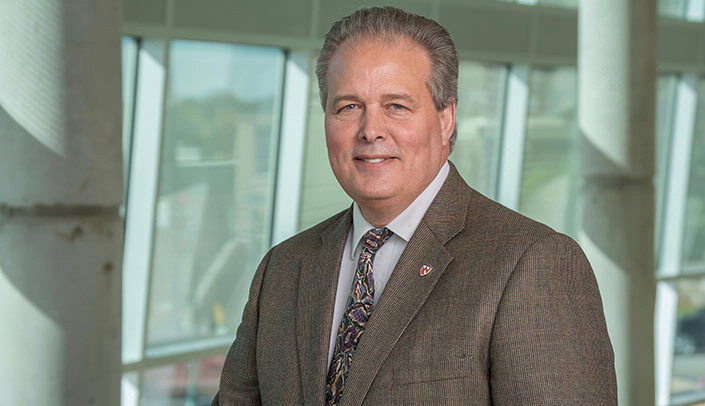The Munroe-Meyer Institute (MMI) recently received renewal of its five-year, $2.7 million federal University Centers for Excellence in Developmental Disabilities Education, Research and Service (UCEDD) grant.
MMI has held the grant as the only UCEDD in Nebraska since the 1960s, which “speaks to a rich history of MMI being a leader in the state of Nebraska,” said UCEDD Director Wayne Stuberg, Ph.D.
MMI Director Karoly Mirnics, M.D., Ph.D., agreed.
“We have an amazing UCEDD team at MMI,” Dr. Mirnics said. “Their work is life-changing for individuals with intellectual and developmental disabilities and their families, and we couldn’t be more proud of them.”
As the next five-year grant cycle begins, Dr. Stuberg, who is also the associate director of MMI, outlined some of the goals and challenges facing the UCEDD and the state.
“For most states, there’s only one University Center for Excellence in Developmental Disabilities,” he said. “Since the federal government has designated us as the center for the state of Nebraska, we are in a leadership position in the state.
“This designation also makes us part of a cooperative group in this area – the Developmental Disabilities Network for the state of Nebraska – and that network is made up of the UCEDD, the Developmental Disabilities Council, and the protection and advocacy agency in the state, which is Disability Rights Nebraska.”
The UCEDD grant is a lifespan grant, Dr. Stuberg said, and that will influence activities in this grant cycle.
“MMI historically has had a strong presence in the pediatric area, and we continue to provide a significant amount of programming in pediatrics, but now we’re looking at transitioning after pediatrics toward young adulthood and adulthood to address some of the issues that adults have,” he said.
MMI is currently collaborating with a significant number of community partners on adult initiatives, Dr. Stuberg added.
“Our team is doing joint programming for the purpose of helping to meet the needs of adolescents, young adults and adults with intellectual and developmental disabilities (IDD),” he said.
He pointed to the development of an MMI-based employment program, Project SEARCH; a partnership with independent living centers in the state of Nebraska; and MMI’s involvement in program assessment for the Division of Developmental Disabilities and Division of Medicaid and Long-Term Care at the Nebraska Health and Human Services, as examples of efforts in these areas.
“We will continue to work at developing programming that allows people to be as independent as possible in a community setting,” he said.
The UCEDD’s role also is to partner with agencies that set government policy, to inform legislators as to the consequences of certain policy choices, and to try to facilitate state policy to be able to get the highest level of independence possible for people in society and being participatory in society.
“We are working with other national, state and local agencies that provide care and support, so that we have a network that takes care of the needs of people,” he said.
